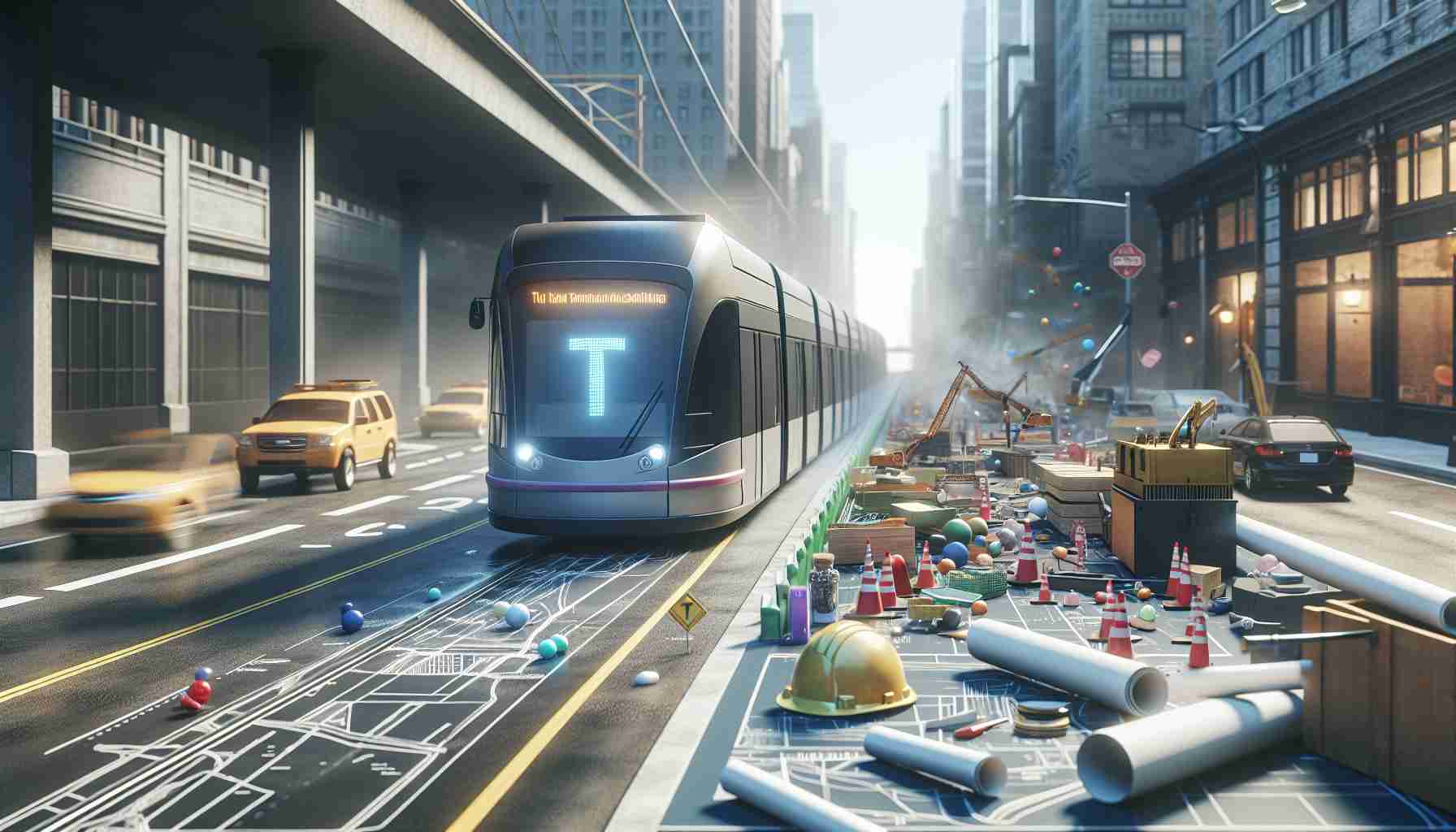Major Milestone for the MBTA: Speed Restrictions Lifted
In an unprecedented move, the Massachusetts Bay Transportation Authority (MBTA) has eliminated all speed restrictions from its subway system for the first time in more than 20 years. General Manager Phil Eng announced that this significant achievement comes just weeks ahead of the year-end deadline he had set for the subway system.
Eng confirmed that the final slow zones on the Green Line would be resolved by the end of the week, marking a key turning point for the agency. With nearly 200 slow zones addressed within a year, the MBTA has made remarkable progress, addressing many of the critical issues affecting commuter transit.
While occasional new speed restrictions may arise, Eng reassured the public that the MBTA is committed to timely repairs and transparent communication. He described the work completed in the past year as “monumental” but acknowledged that challenges remain, especially concerning a projected $700 million budget gap for fiscal 2026 and the ongoing need for federal funding.
Additionally, Eng is focused on reforming the agency’s internal culture amid recent misconduct controversies involving employees. He confirmed that multiple staff members had been terminated due to serious allegations regarding off-duty work practices, stressing that integrity and accountability are paramount for restoring public trust.
With ridership figures gradually improving and a promise of enhanced service ahead, the MBTA is poised for a significant transformation.
MBTA Revolutionizes Commuting: Unveiling New Strategies and Future Insights
Major Milestone for the MBTA: Speed Restrictions Lifted
The Massachusetts Bay Transportation Authority (MBTA) has embarked on a transformative journey in public transit by fully lifting speed restrictions for the first time in over two decades. This bold move, announced by General Manager Phil Eng, signifies a pivotal moment for the subway system, particularly as it addresses longstanding safety and efficiency challenges.
Key Features of the MBTA’s Recent Changes
1. Resolution of Slow Zones: Over the past year, the MBTA has successfully eliminated nearly 200 slow zones. The final restrictions on the Green Line are expected to be lifted within a week, enhancing the overall commuter experience.
2. Commitment to Safety and Repairs: Although the existing speed limits have been removed, Eng has communicated that occasional new slow zones may emerge. The MBTA emphasizes a commitment to rapid repairs and transparent updates regarding any future changes to service.
3. Financial Challenges Ahead: Despite the positive strides, the MBTA faces a projected $700 million budget gap for fiscal 2026. The agency is seeking avenues for federal funding to address these financial constraints while continuing improvements to the transit system.
Pros and Cons of the New Developments
Pros:
– Improved Commuting Times: Lifting speed restrictions promotes faster transit, making commuting more efficient for passengers.
– Increased Ridership: Enhanced service could attract more riders, as individuals seek reliable and timely transportation options.
– Cultural Shift: The focus on accountability and integrity within the workforce aims to rebuild public trust in the MBTA.
Cons:
– Budget Concerns: The looming financial deficit may hinder future improvements and maintenance, affecting long-term sustainability.
– Temporary Setbacks: The possibility of occasional new slow zones could frustrate commuters who anticipate uninterrupted service.
Market Analysis and Future Predictions
The MBTA’s advancements come at a crucial time for public transit systems across the country that are grappling with post-pandemic recovery. As ridership begins to rise, the agency’s strategies could serve as a model for effective transit reforms nationwide.
Experts predict that if the MBTA successfully navigates its budget challenges while maintaining transparency and improving service, it could foster a renewed public interest in public transportation. This interest is vital as cities globally embrace more sustainable transit solutions that reduce reliance on personal vehicles and minimize environmental impacts.
Innovations and Insights
The MBTA’s initiatives reflect broader trends in the transportation sector focusing on innovation and sustainability. Technologies aimed at improving operational efficiency, real-time transit updates, and infrastructure upgrades are increasingly becoming the norm.
As the MBTA continues to evolve, its commitment to enhancing the commuter experience through updated practices, transparency, and accountability will be essential. Future developments such as integration with other transit modes and digital ticketing solutions are likely to further streamline and enrich services offered to passengers.
In conclusion, the MBTA stands on the brink of a significant transformation that could redefine public transit in Massachusetts. For more insights and updates on transit reforms and innovations, visit the MBTA website.
 The Rise, Fall, and Unprecedented Pardon of EV Visionary Trevor Milton
The Rise, Fall, and Unprecedented Pardon of EV Visionary Trevor Milton  The Winning Formula: How BlackRock’s Innovations Power Through Market Uncertainty
The Winning Formula: How BlackRock’s Innovations Power Through Market Uncertainty  How many passenger planes fly per day?
How many passenger planes fly per day?  Paris Celebrates the Arrival of the Olympic Games with Rings on the Eiffel Tower
Paris Celebrates the Arrival of the Olympic Games with Rings on the Eiffel Tower  A Flavor Revolution: Discover the Bold New Black Sesame SOYJOY and Its Innovative Uses
A Flavor Revolution: Discover the Bold New Black Sesame SOYJOY and Its Innovative Uses  Governor Energizes Enthusiasm with a Grand Gesture for Super Eagles Fans
Governor Energizes Enthusiasm with a Grand Gesture for Super Eagles Fans  How many people died during the construction of the Empire State Building?
How many people died during the construction of the Empire State Building?  The Rising Stars of Tennis: Arthur Fils and João Fonseca Shine at Miami Masters
The Rising Stars of Tennis: Arthur Fils and João Fonseca Shine at Miami Masters  Spain’s National Team Faces High-Stakes Clash: Redemption and Rivalry in the Heart of Mestalla
Spain’s National Team Faces High-Stakes Clash: Redemption and Rivalry in the Heart of Mestalla 